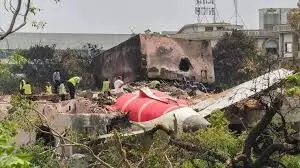NTSB Slams ‘Speculative’ Media Reports Blaming Pilot in Air India Crash
NTSB slams media reports blaming pilot in Air India crash as "speculative"; urges public to await full investigation by India's AAIB.
image for illustrative purpose

The US National Transportation Safety Board (NTSB) has criticized recent media reports suggesting pilot error in the June 12 Air India Flight 171 crash, calling them “premature and speculative.”
NTSB Chair Jennifer Homendy issued a strong statement, urging restraint in drawing conclusions about the tragic crash, which claimed 260 lives near Ahmedabad, Gujarat. The Boeing 787-8 Dreamliner accident is under investigation by India’s Aircraft Accident Investigation Bureau (AAIB), with assistance from the NTSB.
🔍 NTSB: Media Reports Are “Premature”
- “Recent media reports on the Air India 171 crash are premature and speculative,” said Homendy in a post shared by the NTSB on X (formerly Twitter).
- She emphasized that the AAIB’s preliminary report was only recently released and that “investigations of this magnitude take time.”
- Homendy added that all inquiries related to the investigation should be directed to the AAIB and reaffirmed the NTSB’s commitment to support the ongoing probe.
🛫 What We Know So Far
The AAIB’s preliminary findings revealed that two fuel control switches aboard the aircraft were moved to the “cutoff” position moments after takeoff, causing both engines to lose power. Although the switches were reset within 10 seconds, the aircraft had already lost critical thrust, leading to the crash.
The cockpit voice recorder captured First Officer Clive Kunder questioning Captain Sumeet Sabharwal on the shutdown. Sabharwal reportedly denied initiating the cutoff, according to the AAIB.
🚫 Caution Against Blame
The incident has drawn international attention, with Western media outlets speculating on pilot error. However, both Air India CEO Campbell Wilson and the AAIB have cautioned against such assumptions until the investigation concludes.
Indian pilot unions have also pushed back against foreign media narratives, stating that the data needs to be fully examined before assigning responsibility.
🔧 Regulatory Response
In response to the preliminary findings, India’s civil aviation regulator has ordered inspections of fuel control systems across all Boeing 737 and 787 aircraft operating in the country to rule out any systemic mechanical failures.

